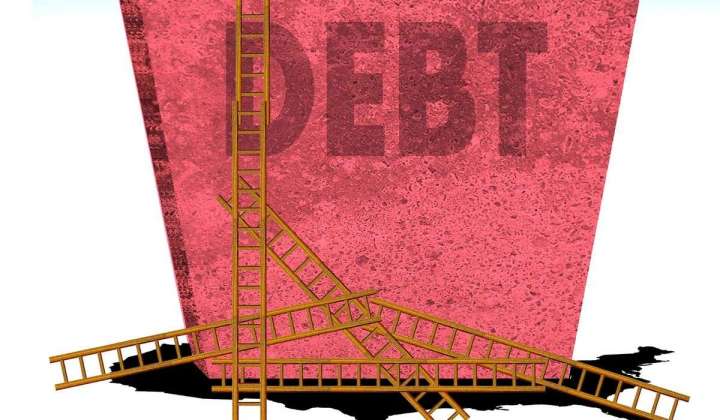Debt ceiling kabuki: Republicans will cave and U.S. government finances will get even worse

OPINION:
Here we go again. Treasury Secretary Janet Yellen warns that the federal government’s borrowing limit has been reached. Even with Treasury taking “extraordinary measures,” the government’s ability to meet payments will be exhausted in a few months.
Leaders of the Republican-controlled House of Representatives say the House won’t vote to raise the debt ceiling, which would allow further borrowing, without spending cuts. But the White House and Democratic leaders reject that proposition.
Soon the bond markets will be roiled. Fearmongers will raise the alarm that the United States will default on its bond obligations and will no longer be able to make Social Security and Medicare payments.
The White House will bet that the standoff hurts the opposition, which it will, and then a deal will be reached that, in essence, involves the GOP-led House caving in while the White House and the Democrats agree to meaningless budget reductions (in reality, reductions in planned increases, not real cuts) that, if they ever materialize, will change little in the grand scheme of things.
All this as the U.S. balance sheet continues its descent into banana republic unviability.
We’ve been here before. Nothing indicates that the current fight between the Republican House and the Democratic White House over the debt ceiling won’t follow a similar script.
To start, let’s be clear about the risk of the United States defaulting on its debt. There is none. The United States can and will continue to borrow and inflate its way out of the debt pressures. Even if the debt ceiling is not raised (possible only in la-la land), the government could always prioritize its expenses, as you and I do, by servicing the debt and honoring its commitments to retirees and elderly patients. Yes, it would have to withhold some other payments (that’s what prioritizing means, right?), but it would not default.
Let’s be clear about something else too. The need to borrow does not stem from the COVID-19 pandemic or the war in Ukraine. The deficit has increased 12% since last year alone when it dropped precipitously from the previous year because politicians could no longer make a convincing case that extraordinary COVID-related expenditures were still needed.
Part of the increase is tied to the rise of interest rates. But blaming the Federal Reserve’s monetary tightening for the debt ceiling crisis is silly. The culprits are the fiscal spendthrifts who have been running up U.S. deficit spending for a crazy long time, resulting in the astronomical debt that has accumulated.
Monetary policy, to be sure, gravely contributed to the U.S. government’s financial chaos by keeping interest rates artificially low for more than a decade, making it look as if incurring ever larger amounts of debt was a minor sin that carried little punishment.
The result of this fiscal profligacy and interest rate repression is that public debt since the new millennium began has increased from almost $6 trillion to almost $31 trillion, rising at close to six times the rate of growth of interest payments.
This fiction was bound to meet reality sooner or later. That time is now — with the Fed having to let interest rates rise to fight inflation.
U.S. government finances will get even worse in the future, with interest expenses projected to triple over the next 10 years.
Continuing to raise the debt ceiling while never doing anything meaningful about the unwieldy U.S. government is why we find ourselves in the current situation. If we count entitlements, mandatory spending measures, the defense budget and interest expenses, there is very little over which Congress has any discretion (defense is politically untouchable, the others legally so).
One cannot pursue contradictory aims for a long time and expect consistent results. The welfare state, the warfare state and the Financially Responsible State are mutually exclusive propositions.
The U.S. government decided a long time ago to pursue the first two and throw away the third. Soon it will find out that the other two are also incompatible — precisely because, in the absence of an overriding sense of financial responsibility, there is no way to sustain those two behemoths.
The House GOP can demand meaningful spending reductions in exchange for increasing the debt ceiling, but it’s bound to lose because, in the political game, nothing is what it seems. Especially spending “cuts.” It’s still worth trying — I guess.
• Alvaro Vargas Llosa is a senior fellow with the Independent Institute in Oakland, California. His latest book is “Global Crossings: Immigration, Civilization and America.”






